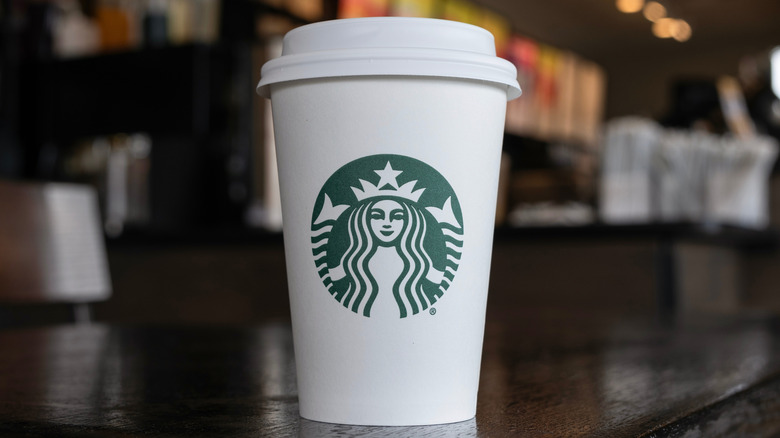The Major Starbucks Controversy Everyone Forgot About
It seems the troubles for Starbucks are never-ending. This ubiquitous mega-chain has faced boycotts, unionization drives, and falling sales globally. It's actually hard to keep pace with stories about it, so it's no wonder that we've all forgotten that in April 2025, a lawsuit was filed against Starbucks by Brazilian workers alleging forced labor in its supply chain.
Eight workers, only identified as John Doe 1 to 8, sued the company with the help of International Rights Advocates (IRA). One of the John Does alleges he was recruited at the age of 16 to work for a coffee farm. When he arrived, they were given no protective clothing, they were not paid, and they worked from 5:30 a.m. to 6 p.m. every day with only one 20-minute break.
The farm was raided by Brazilian authorities, and the John Does were rescued, but that seems to be just the tip of the iceberg. This practice of using forced labor in coffee farming is so common that Brazil keeps a running list of farms known to use forced labor, called the "dirty list." Documented child labor in Guatemalan coffee farms and sexual abuse in Kenyan tea farms are also among the big secrets the coffee chain has tried to hide – a lawsuit addressing the alleged human rights violations of Starbucks' coffee suppliers was filed against the company in January 2024.
Forced labor in supply chains is challenging to address
It's pretty well known by now that major chains in various industries violate our labor laws, like with child labor in fast food businesses and evil chocolate. It's less well known just how pervasive unethical labor practices are globally. While we can begin to understand issues of forced labor in sectors like coffee, bananas, chocolate, fishing, and clothing, it's difficult to estimate raw numbers because there is no consistent definition of "forced labor." The Global Slavery Index seeks to track the issue of global slavery and estimates that around 50 million people are affected. However, addressing this issue is challenging due to the lack of legal definitions, varying contexts, and challenges of replicating data.
One way to address forced labor in the coffee industry is the Fair Trade labeling initiative, which seeks to set minimum pricing on agricultural goods globally. The idea behind this is that an increase in prices allows farmers and workers at the beginning of the supply chain to make a livable wage. Some coffee roasters, usually small and craft-oriented, try to do what's called direct trade. This usually means the roaster sends its team directly to coffee farms where they purchase green beans (typically at a significant premium) and cultivate a long-term relationship.
Instead of adhering to reputable, third-party standards, Starbucks set up its own guidelines on coffee sourcing known as its Coffee and Farmer Equity (C.A.F.E.) Practices. Unfortunately, it seems these guidelines lack basics like minimum guaranteed prices for coffee, and they only call for inspections of farms every 2 to 3 years.

